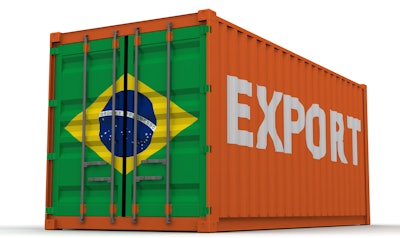
Brazil is well known as the largest chicken meat exporter in the world, but exports of other poultry products, such as genetic material – one-day-old chicks and fertile eggs for both layers and broilers – is also very important. Last year, 26,479 metric tons (MT) of poultry genetic material were exported, almost a 70% increase over 2022. Fertile egg exports have significantly increased, both in terms of volume and income, after the pandemic, particularly in 2023.
The Americas take 74% of the Brazilian poultry genetic material exports. Then comes Africa with almost 24%, and the remainder is distributed throughout the rest of the world. This shows the importance of this continent for Brazil. In terms of products, one-day-old chicks are exported mostly to neighboring countries in South America, but fertile eggs go as far as Senegal and South Africa in addition to Mexico.
According to the National Poultry Producers of Mexico (UNA), Mexico imported 48,000 MT of fertile eggs in 2023, and of that, 28% came from Brazil. Mexico has been increasing imports from that country, with 13,514 MT in 2023, a 72,68% increase compared with 2022, and a participation rate of 51.04%. For the first quarter of 2024, Mexico was at the top of exports, with 1,656 MT, but it was 48.8% less compared to the same period in 2023. As the year advanced, Mexico imported 4,750 MT between January and May 2024, a 40.6% decrease compared to the same period in 2023.
All of this means that Brazilian poultry genetic material exports may be shifting, and focus might be on Africa from now on. Notwithstanding, the importance of Brazilian poultry genetic material is highlighted, particularly with the endemic avian flu problem in Mexico. Once again, the avian health condition flag of Brazil – as well as the size and infrastructure of the industry – helps to achieve this.
I wonder why poultry genetic material imports from Brazil are decreasing. I can understand these imports are a great solution for the time being, but what about in the long run? Mexico also depends on imports of chicken parts. To change this, maybe government support is a must. And rules have to be clear, such as with GMO corn, considering we are next door to the largest corn producer in the world. Because yes, Mexico depends on corn imports too.
What do you think?



















